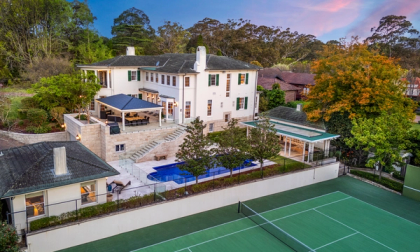
Rental Market Update: Autumn/Winter 2023
The rental market here on Sydney’s Upper North Shore has rarely been tighter than right now.
Strong tenant demand and a general shortage of property are leading to low vacancy rates and rising rents. We explore the data to understand exactly what’s happening in Ku-ring-gai and Hornsby Shire’s rental markets, andanalyse how the current trends impact you as a property investor or tenant.
How much are rents rising on Sydney’s Upper North Shore?
The median rent on the Upper North Shore rose by 26.2% over the past 12 months, according to SQM Research. That’s well above the 10-year average growth of 3.1%.
This means the median house rent is now $1,125 – up 15.3% over the past year – and the median apartment rent is now $742. That’s an incredible 35.4% higher than 12 months ago and 11 times the average growth of 3.2%.
What’s behind these dramatic rent rises?
While the rent rises in our area have been nothing short of spectacular, they’re partly the result of a citywide, even nationwide, trend towards growing rents. There are several reasons this is happening.
-
Shortage of properties. Right around the country, we’re suffering a housing shortage. But potentially, nowhere is feeling the impacts of the lack of available properties as much as Sydney. The lack of housing is being made more acute by rising construction costs and the unavailability of trades, leading to a lack of development.
-
Growing population. This lack of properties is colliding with a growing population. Sydney’s population of 5.2 million is expected to grow to 6.1 million by 2041. Every new resident needs somewhere to live, and most will choose to rent – at least initially.
-
Low vacancy rates. The Sydney wide vacancy rate is now 1.3%, according to SQM Research. That means, for every 1,000 rental properties just 13 are available for rent at any one time. This is down from a high of 4.3% in May 2020.
-
Inflation and interest rate rises. These are adding to many landlords’ cost pressures, encouraging some to put up rents. Rising interest rates also encourage many tenants to keep renting rather than buying their first home, increasing competition and reducing the supply of available properties.
There are also some local factors at play – specifically when it comes to the growing desirability of the Upper North Shore for renters. For instance, Census data shows that between 2016 and 2021, the number of properties rented in our area grew by 1,544, or 22.9%.
What does the current state of the market mean for you?
If you’re a tenant looking for somewhere to rent, securing a decent property has become much more difficult over the past year. But that doesn’t mean it’s impossible. The most effective way to secure a good next home is to be prepared. Before you attend any inspections, make sure you have your finances together, as well as your referees, so that you’re ready to apply the moment you see something you like.
If you’re an investor, it means that you may have the option of increasing your rent next time there’s a rent review. That said, you should always make sure you do it properly, and in consultation with your property manager. After all, it’s usually more important to have a good long-term tenant who looks after your property than it is to have a short-term boost to your income.
Finally, if you want to add to your property portfolio, now could be a great time. The recent increase in rents may be able to offset any interest rate rises. Meanwhile, the value of properties has come down over the past 12 months (although that looks like changing), and yields are as high as they have been in some time.
Rents and Yields By Suburb and Property Type
Below you’ll find recent data on Upper North Shore rents and yields. As the table shows, the best performing suburbs for yields are Asquith (4.2%) and Mt Colah (4.1%) for apartments, and Mt Colah and Berowra for houses (2.6% each).
Meanwhile, Roseville (22.6%) has seen the most growth in apartment rents, and Pymble (18.2%) in house rents. This suburb data varies slightly from SQM Research as it comes from realestate.com.au.
* Source: Realestate.com.au suburb profiles, accessed 27 April 2023
Want more?
Thinking of buying, selling or renting on Sydney’s Upper North Shore, including Ku-Ring-Gai and Hornsby Shire? Get in touch.
Choosing an auctioneer
The first step in selling your property through auction is to choose an experienced auctioneer. Their job is to guide you through the auction process and help you achieve the best possible outcome. Look for a licensed auctioneer who has a strong track record of successful auctions.
The best auctioneers are very good at creating an atmosphere of anticipation and excitement without building unnecessary tension at what is, essentially, a very serious and often stressful event.
If you can, go along to a couple of auctions to see them in action. You’ll quickly get a feel for their practice and will feel more confident knowing that you are in capable hands.
Setting a reserve price
The reserve price is the minimum price you are willing to accept for your property. It is set before the auction and is kept confidential between you and the auctioneer. Usually set in consultation with your real estate agent, the reserve price should be realistic and based on market conditions and the value of your property.
Marketing your property
To attract potential buyers to your auction, your real estate agent will set up a campaign to market your property effectively. This will usually include taking high-quality photos and videos, creating a comprehensive property description, and promoting the auction through various channels such as social media, email marketing, and print media.
Preparing your property
To ensure your property looks its best for inspections and on auction day, you need to prepare it thoroughly. This includes decluttering, cleaning, and making any necessary repairs or renovations. You may also want to consider staging your property to create an attractive and welcoming atmosphere.
Conducting inspections
Prospective buyers will want to inspect your property before the auction. The more people that see your home, the more competition there is likely to be on auction day. It is important to make these inspections as convenient as possible by offering flexible viewing times, which will help to generate interest in your property and increase the likelihood of a successful auction.
Auction day
On auction day, your auctioneer will conduct the auction and manage the bidding process in an orderly, professional manner. Potential buyers will register their interest and make bids on your property and all bids will be recorded to avoid any disputes or misunderstandings.
At some point before the reserve price is met, your auctioneer may place what’s called a “vendor’s bid” to encourage further bidding from prospective buyers. A vendor’s bid can only be made if it’s been announced as a possibility before the auction begins and must be below the reserve price.
As bidding continues, in increments usually dictated by the auctioneer and once the reserve price has been reached, the property is effectively on the market. From that point, the highest bidder will then purchase the property at the fall of the hammer.
There is no cooling-off period at auctions, with contracts exchanged and the deposit paid in full on the same day as the bidding.
Post-auction negotiations
If your reserve price is not met, the property will “pass in”, meaning it remains unsold. If this happens, you may choose to negotiate with the highest bidder or other interested parties after the auction, which could involve adjusting the reserve price or negotiating the terms of the sale.
In conclusion
In summary, selling a property through auction can be a fast and effective way to achieve a great price for your property.
By choosing an experienced auctioneer, setting a realistic reserve price, marketing your property effectively, and preparing it thoroughly, you can increase the likelihood of a successful auction.
If you are considering selling your property through auction, contact DiJones today to speak with one of our experienced agents and auctioneers.
Other buying, selling and investing articles and resources
Guide to property investment success in NSW
Selling a house or apartment in NSW eBook
Buying a house or apartment in NSW eBook
Was this content helpful to you?





